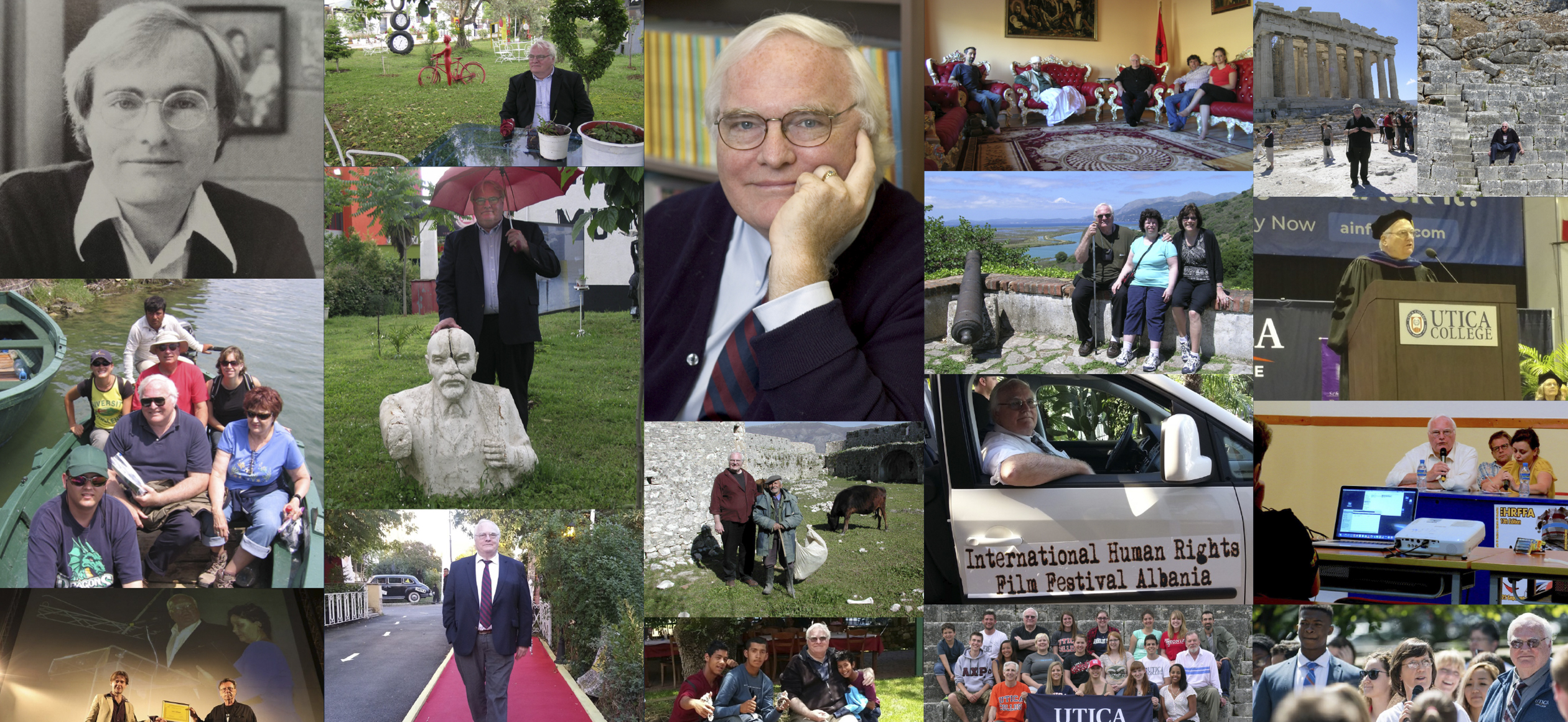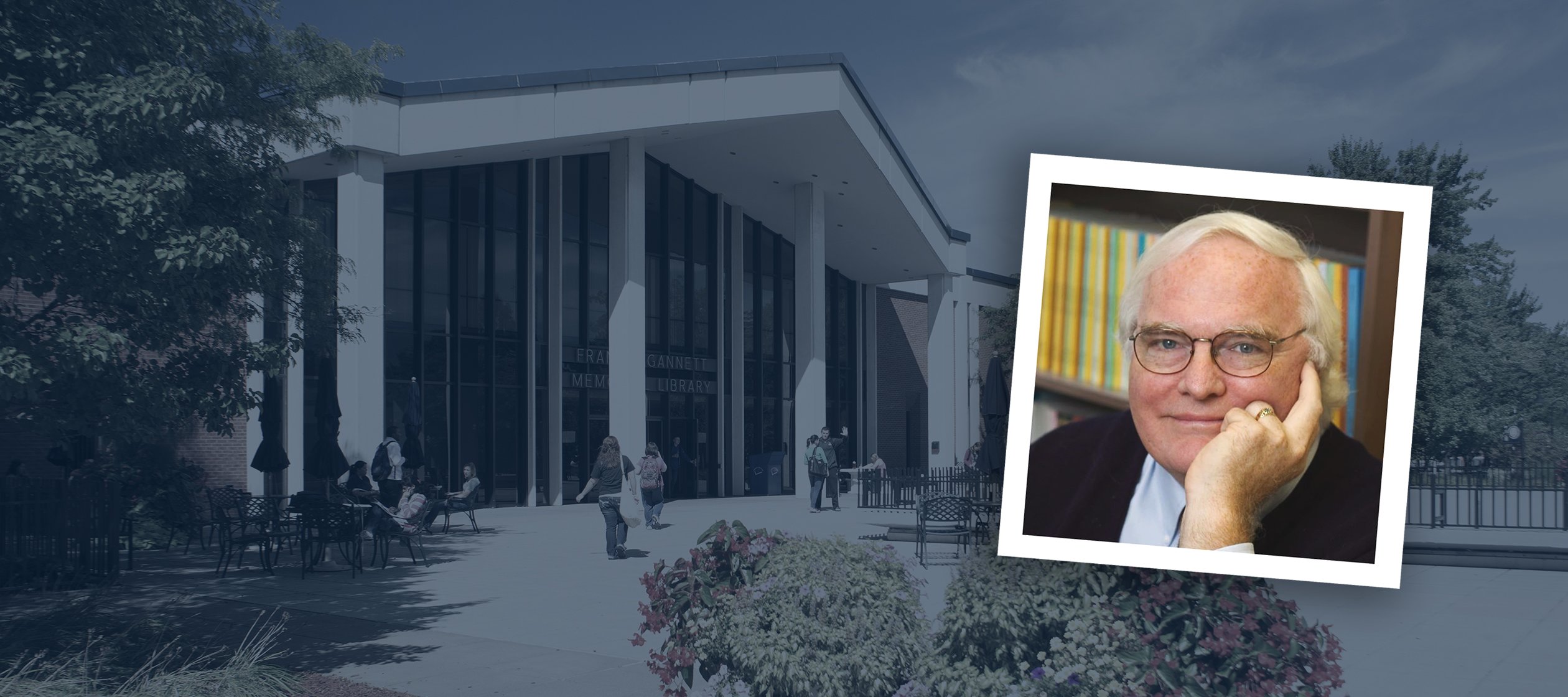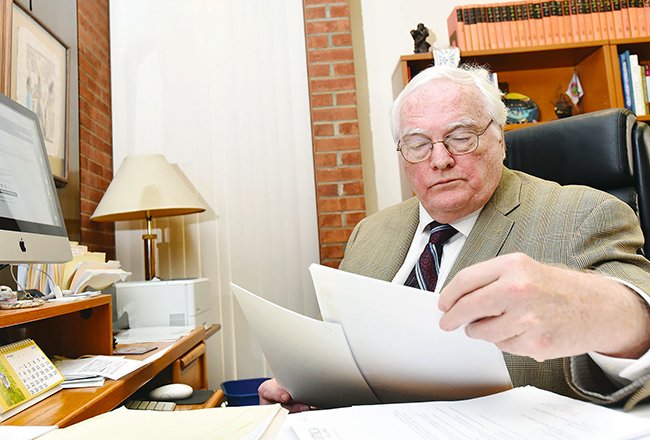

Dr. John H. Johnsen
I tried to inspire my students to use the information and the perspective of my discipline in ways to enrich their lives and make them better thinkers, better citizens.
A Celebration of the Life of Dr. John H. Johnsen

Video Remembrance
Please watch this brief look back on John's life and career.
More about Dr. Johnsen:
Dr. John H. Johnsen was a professor, dean, and provost at Utica College between 1977 and 2018. He was a specialist in medical and ecological anthropology, cross-cultural healing, and the Native American cultures of New York. After serving as Dean of the School of Business and Justice Studies and then the School of Arts and Sciences for many years, Dr. Johnsen was named Provost and Vice President of Academic Affairs at Utica College in 2015. He retired in 2018 and passed away on July 25, 2020.
A native of Middletown, Ohio, Dr. Johnsen received his Bachelor’s and Master of Arts degrees in Anthropology from Case Western Reserve University, where he studied with renowned paleoanthropologist Milford H. Wolpoff. He earned his Doctorate in Anthropology at the State University of New York at Buffalo in 1980. His dissertation, “Doctrinal Diversity in Two Religious Organizations,” revealed important differences between Lutheran and Quaker faith traditions that compared hierarchical Lutheranism to the more egalitarian Quaker tradition, where discourse and debate were emphasized and valued.
In 1977, Dr. Johnsen joined the faculty at Utica College in the Sociology/Anthropology department. After earning tenure, he moved into administrative roles while continuing to teach courses on the effects of cultural beliefs on health practices and a survey of Native American societies and their histories. In 1986, Dr. Johnsen co-authored an article in Social Science and Medicine titled “Toward a Critical Medical Anthropology.” Written with renowned anthropologists Hans Baer and Merrill Singer, it has since become recognized as a seminal piece in the development of a politically-oriented theoretical perspective in medical anthropology.
Among Dr. Johnsen’s later publications were articles on societal responses to the restoration of wolves in New York’s Adirondack Park and on the efforts by the Oneida Indians to preserve their language. In 2012, Dr. Johnsen was the lead author of “Land and Language: The Struggle for National, Territorial, and Linguistic Integrity of the Oneida People” published in the Journal on Ethnopolitics and Minority Issues in Europe. He had previously presented this research in 2011 at the annual conference of Poga – The Language Survival Network in Tallinn, Estonia.
Dr. Johnsen was a strong advocate of international educational experiences and human rights. In 2000, he spent the spring semester as an Invited Scholar at the Institute of American Studies at Jagiellonian University in Krakow, Poland, which resulted in several articles on aspects of Native American history for Polish academic audiences. In 2004, he began co-teaching Utica College’s annual Forensic Anthropology/Bioarchaeology Field School in Albania, Greece, and Romania. Reflecting his interest in teaching methods and transcultural education, in 2007 Dr. Johnsen co-authored the paper “Introducing Forensic Anthropology to Albania Using the Problem-Based Learning Model” at the annual conferences of both the American Academy of Forensic Sciences and the Society for Cross-Cultural Research.
In 2006, Dr. Johnsen collaborated with human rights activists Ted Orlin and Kujtim Çashku to establish the International Human Rights Film Festival – Albania, held annually at the Marubi Academy of Film and Multimedia in Tirana. He subsequently taught master classes on Native American cultures at the Marubi Academy and served as a speaker and discussant at several film festivals.
Dr. Johnsen was also an activist for civil rights and social justice throughout his life, including during the Civil Rights Movement in the 1960s and through his later advocacy for the Oneida Indian Nation in upstate New York. He was a proud citizen of Utica and believed in the power of education. In 1993, he co-founded the Young Scholars Liberty Partnerships Program between Utica College and the Utica City School District to encourage talented students to stay in school, earn their degree, and contribute to their community. He served as President of its Advisory Board for several years. Always proud of his ancestry, Dr. Johnsen was also an active member of the Scandinavian Club in Utica and the Sons of Norway.
In considering his four decades as a professor and academic administrator at Utica College, Dr. Johnsen wrote that he “tried to inspire my students to use the information and the perspective of my discipline in ways to enrich their lives and make them better thinkers, better citizens.” John H. Johnsen will long be remembered as a caring teacher, colleague, advocate, friend, and contributor to his academic and anthropological communities as well as to Utica, the upstate New York region, and the many countries where he lived and taught.
Please watch this brief video of Dr. Johnsen, recorded in 2011 during his tenure as Dean of Arts and Sciences.

"The Heart and Soul of Utica College"
Read this community remembrance of Dr. John H. Johnsen, published in the Fall 2020 issue of Utica Magazine.
View ArticleI would like to see logins and resources for:
For a general list of frequently used logins, you can also visit our logins page.
